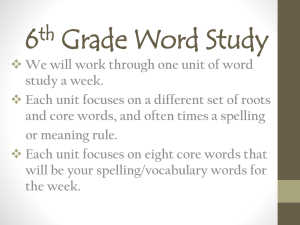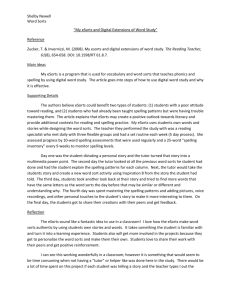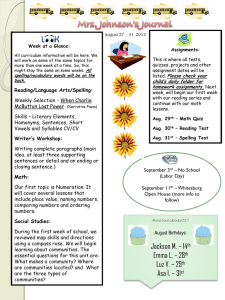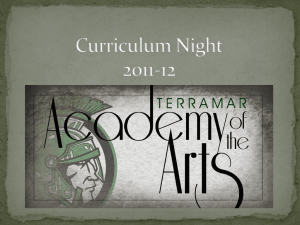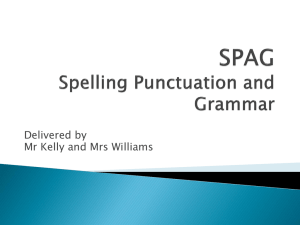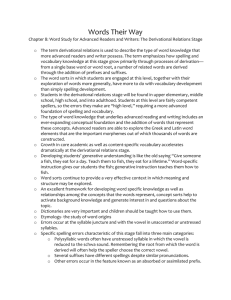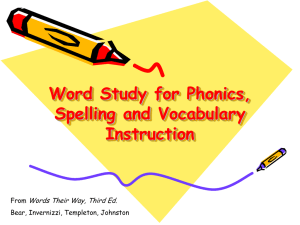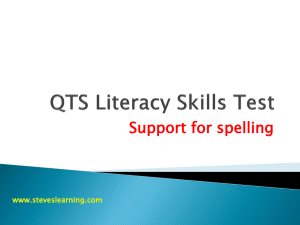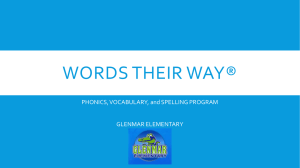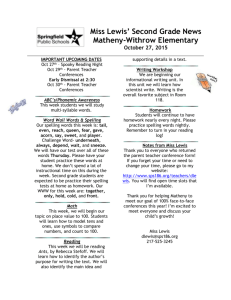Document
advertisement
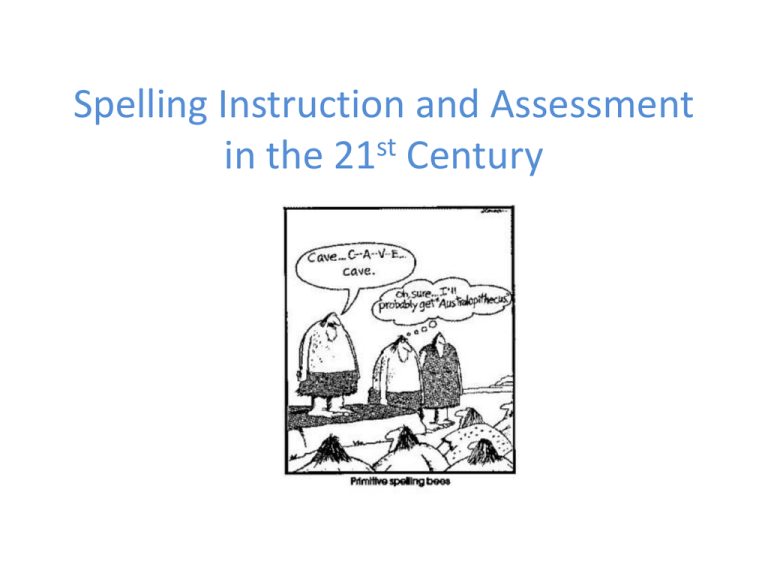
Spelling Instruction and Assessment in the 21st Century Past Practices • What makes a good speller? • What was spelling instruction and assessment like 25 years ago? Orthography • The study of spelling and how letters combine to make sounds and words. • English is far more regular than it appears on the surface--Scripps Spelling Bee scholars as an example. • Once teachers have a clear understanding of student’s orthographic knowledge then we can tailor instruction to match needs. • Teachers look at student’s spelling in daily writing and in assessments. • MPS teachers use the Developmental Spelling Assessment (DSA). Developmental Spelling Assessment • Stages: Letter Name Within Word Syllable Juncture Derivational Constancy • Each Stage contains “Features” Instructional Strategies • Looking to teach the “Big Picture”—rather than learn a limited list of words, we teach students to use the English language system to spell MANY words. • “Word Study” is a natural bridge between reading and writing. • In “Word Study” activities, students are taught to explore the sound, pattern and meaning relationships between words. • A guided approach is used with a gradual release to the students. Types of Word Sorts • • • • • Guided Sorts Blind Sorts Speed Sorts Writing Sorts Sort, Check & Reflect Let’s try a “Blind Sort” • • • • • • • • • • • • Bomb Signature Crumb Hymn Bombard Crumble Autumnal Columnist Wrest Bombardment Sign hasten muscular moist wrestle muscle haste hymnal Where do irregular words fit in? • have, some, find, does, often, head…… Questions/Comments?
